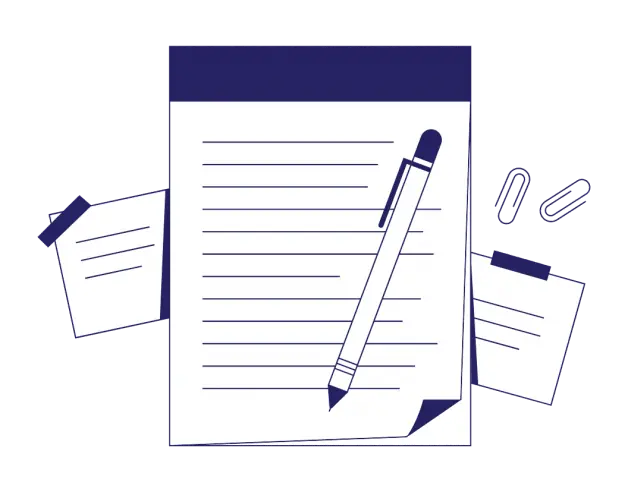
-
4-minute read
-
14th January 2023
How Is Proofreading Done?
Has anyone ever suggested that you proofread something you’ve written? Maybe you’re a student working on an important essay, or you might be an aspiring author hoping to publish your first book. You might even be a business professional that has a big report to submit. Do you need to proofread something but don’t know what goes into proofreading? Are you considering a proofreading service? If so, read on!
In this blog, we’ll talk about the proofreading process and how proofreading services work. We’ll also highlight a handy proofreading service. By the end, you’ll have a better understanding of how proofreading is done!
What Does Proofreading Involve?
First, it’s important to know that proofreading will depend on a client’s chosen style or guide. Whether it’s an essay, business report, or manuscript, a proofreader does the following:
● Fixes grammar, spelling, and punctuation errors
● Looks out for inconsistent spelling and incorrect capitalization
● Checks for extra spaces left in a document
● Makes minor changes for clarity and concision
● Adapts vocabulary to suit the document type and purpose
A proofreader can also check for typesetting issues (e.g., incorrect use of italics or inconsistent font size).
How Proofreading Services Work
Proofreading services take the legwork out of proofreading, saving clients precious time. Additionally, ESL students are often encouraged to use proofreading services. While every service has a unique method, they generally work like this:
- The client chooses a service, pays a fee, and uploads their document to the service’s platform.
- The client can make special requests (if needed) for their document, such as “replace all references to X as an “agency” with the word “company”.
- The proofreader accepts the document, proofreads it, and then uploads the completed document to the platform.
- During the proofreading stage, the client may contact the service to make adjustments to the document (if needed).
- The service returns the completed document to the client (after it has been submitted to the service).
- The client reviews changes and suggestions made by the proofreader (they can accept or reject changes/suggestions).
Documents are proofread by a human proofreader rather than a computer. Humans tend to catch things that online proofreading tools don’t!
Proofreading Service Exclusions
Unfortunately, there are some things that proofreading services don’t provide, even if a client requests them. They’re either not part of the service or simply beyond the scope of proofreading. Here are some proofreading exclusions to be aware of:
● Increasing or decreasing word count
● Commenting on sources used (student clients)
● Correcting factual information (although this may be highlighted in a comment)
● Advising on content
Find this useful?
Subscribe to our newsletter and get writing tips from our editors straight to your inbox.
Subscribe to Beyond the Margins and get your monthly fix of editorial strategy, workflow tips, and real-world examples from content leaders.
● Adding new content to a document
● Guaranteeing certain grades (student clients)
Clients are responsible for these things, and most are generally aware of this. It’s important to know that most proofreading services strive to preserve the client’s intended meaning. This is particularly true in the academic world, where a student’s work is being assessed. Any changes to the client’s meaning could subject them to plagiarism.
It’s also worth noting that proofreading is not the same as editing; there’s a difference between the two. For one thing, proofreading usually takes place after editing.
A Handy Service Called Proofed
If you’re looking for a reputable proofreading service, we suggest considering Proofed. Proofed consists of expert proofreaders based around the globe who specialize in various subjects. They provide all the services you’d expect from a reputable agency. Proofed is an excellent choice for students, busy professionals, researchers, and authors. Clients go through similar steps to those previously mentioned, and they can choose when they need the document completed.
Here are some of Proofed’s distinguishable highlights:
● Completing documents in 24 hours (they can even have them done in as little as three hours!)
● Proofreading documents in US, UK, Australian, and Canadian English
● Highlighting unclear sentences and suggesting corrections
● Ensuring proper use of en and em dashes
● Specializing in common academic referencing, including MLA, APA, and Chicago
● Checking that citations and references are clear and correct
● Proofreading various types of documents, including Word, Excel, PDFs, and others
As you can see, variety is Proofed’s specialty! All of Proofed’s editors undergo thorough training in order to provide exceptionally high standards.
Are you currently working on an important document? Want to see how Proofed ensures perfect spelling, punctuation, and grammar? Then consider submitting a 500-word document for free today!